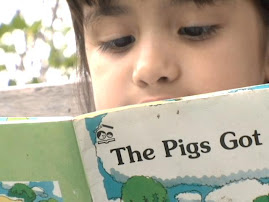Wednesday, September 29, 2010
Why not computer programs?
Wednesday, September 22, 2010
Home Visitation in the National Spotlight
Children's gifts distributed to Dallas HIPPY family (mom in red, remainder is Dallas and Texas HIPPY staff)
Texas HIPPY program coordinators would tell you that once you enter a family home, even though you may be there for educational purposes, all sorts of social, psychological and financial hardships are revealed, and program staff must be well versed in community resources and how to refer families to receive help. All of our programs have developed a strong network of partnerships that help families who are faced with a myriad of problems, including developmental disabilities in children; lack of basic resources such as utilities and food; and family crisis issues such as violence, depression and legal problems.
Tuesday, September 14, 2010
Blue Print for Education Starts in Kindergarten
There's a big push going on right now to try to convince the Administration to include pre-K in the new Blueprint for Education--the education reform initiative. It seems only logical to include pre-school in the education plans for our country. We know beyond a shadow of doubt that the "home" is the greatest influence on a child's educational success. The blueprint exhorts for such improvements as better teachers and leaders in schools, equity for all students, raising the bar and promoting innovation. These are all commendable and desirable - and yet they can only take students as far as parental support, knowledge and participation will allow. Most preschool education happens in the home, especially with Latino parents, who represent the most rapidly growing sector of the school population. Begin with parents and better student outcomes will follow.
Tuesday, September 07, 2010
Serving Latino Youngsters
HIPPY Irving "graduate"
Subscribe to:
Posts (Atom)







